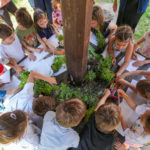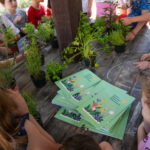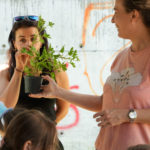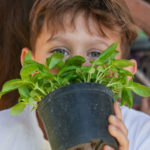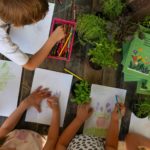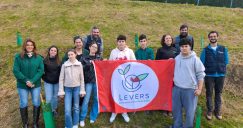Urban Plants and Pollinators: LEVERS Workshop with Ekonaut in Belgrade
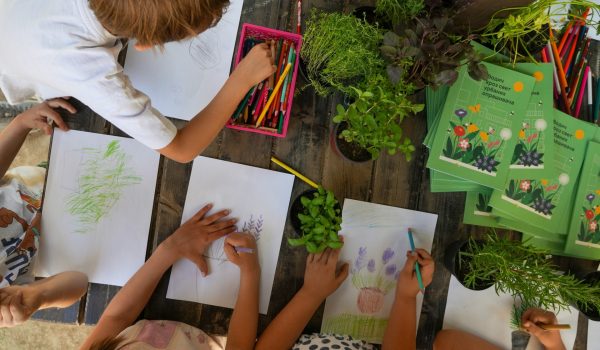
- Article, Serbia, TYPE, Workshop
As part of the LEVERS project in Serbia, the Learning Venture team partnered with the EKONAUT organization to host a vibrant educational workshop at the Leptirić Kindergarten in Belgrade.
Dedicated to enhancing environmental awareness and promoting sustainable development, EKONAUT brought their unique expertise in eco-education to this hands-on event. The session was led by Sabina Kerić, EKONAUT’s environmental education expert, who introduced the children to the fascinating world of urban plants and their role in supporting local ecosystems.
Through playful and age-appropriate activities, the children explored how different plants thrive in urban environments and how these plants play a vital role in supporting pollinators such as bees and butterflies. Sabina guided the children through the importance of greenery in cities—not only as a source of beauty, but as essential infrastructure that cools down urban heat islands, stores rainwater, and provides food and shelter for pollinating insects. These plants are crucial allies in maintaining biodiversity, particularly in densely populated areas, and help build more climate-resilient communities.
In addition to understanding the ecological functions of urban flora, the workshop emphasized the broader themes of climate justice and environmental responsibility. Children learned how access to green spaces and clean, pollinator-friendly environments is not equally distributed in cities, and how efforts like community gardening and city beekeeping can contribute to a fairer, more inclusive urban future. By connecting the dots between nature, climate, and social equity, the workshop encouraged young minds to think about how their everyday surroundings affect the environment—and how they, even as preschoolers, can play a role in protecting it.


